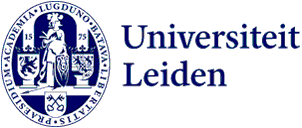
Three questions to Maurits Berger about his new Islam podcast
Maurits Berger's new English-language podcast, Matters of Humanities: History of Islam in Europe covers no fewer than thirteen centuries of history. In eight episodes, professor of Islam and the West Maurits Berger argues that the Islam and Muslims are an important part of European history: ‘That was the case in the past, and is still the case now.’

Why was there a need for this podcast?
‘It all started with my book A Brief History of Islam in Europe. In my book, I analyse Muslims and the Islam, which have had a presence in Europe since the eighth century. But I only started to notice how much this topic excited people until after I started doing lectures on the subject. It is an interesting history, sometimes outlandish, sometimes impressive, and at the same time extremely relevant today.
The presence of Muslims in the west and north of Europe is still quite new, but it has also turned out that the way people respond to the Islam has many roots in history. For example, we have an age-old “tradition” of concern for “those poor oppressed Muslim women.”
I do not want to tell the listeners of my podcast what to think. I would rather provide them with the facts and they can form their own opinions based on those facts. For some people this podcast will give them entertaining stories, others may find it interesting to learn in which ways history has changed over the years.’
How do you manage to comprise thirteen centuries of history in one podcast?
‘Most historians will probably be perplexed by my goals, and I do admit it is quite ambitious. But my podcast proves that it can be done. It goes without saying that some topics will remain undiscussed, but the goal is that listeners are informed enough to be able to follow developments.
Muslims were seen as the best friend but also the worst enemy
If you line everything up, you will see that through the ages, Muslims were seen as the best friend but also the worst enemy, as fellow citizens but also outsiders, as believers more tolerant than Christians, but also the Antichrist. Because you cover so many years, it proves that there was no one typical “Muslim.”
I have illustrated these fluctuations with stories and anecdotes. These took a minor role in my book, but in my podcast they take centre stage. A personal favourite of mine is a story about a South American ambassador whom I once visited in his residence in Wassenaar. In said residence hung a gigantic painting depicting a treaty between the Dutch and the Moroccans against the Spaniards that took place in 1610. The ambassador waved his finger at me and said: “you Dutch people, you have betrayed us.” There are clearly still lots of emotions involved, even regarding an event that happened more than four hundred years ago.’
What can we expect from you in the future?
‘I enjoy working on parallel projects, one more scientific and the other more popular. A scientific work I am currently focusing on is about the Islamic State. This stems from my background as a legal expert. In our country, state law is part of law, but Islamic law is unfamiliar with the concept. I want to find out what modern Muslim thinkers mean when they talk about this subject. I also want to write a popular science book about the recent history of Islam in the Netherlands. It is much more complicated than I had initially expected. Everything about Islam in the Netherlands seems to be concentrated on the year 2004. That was a very intense year, it could be described as a rollercoaster, and after 2004 it seems time has been standing still. I would love to try and capture that experience of time, because it explains a lot about how we deal with the Islam and Muslims today. But I cannot do that with scientific methods, so I'm looking for other ways.’
